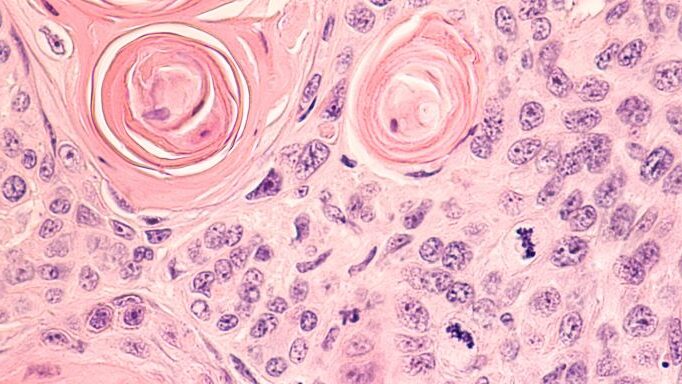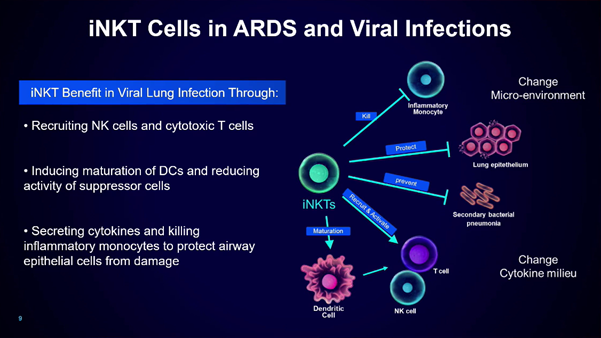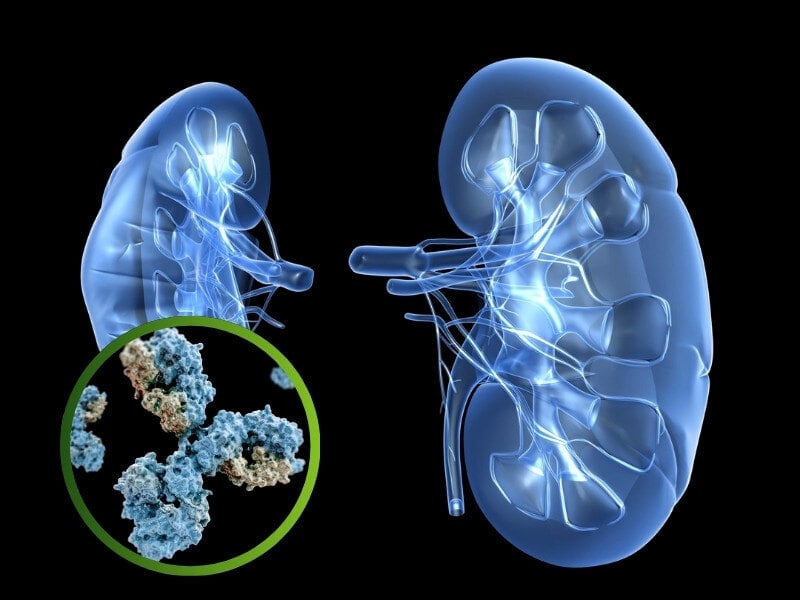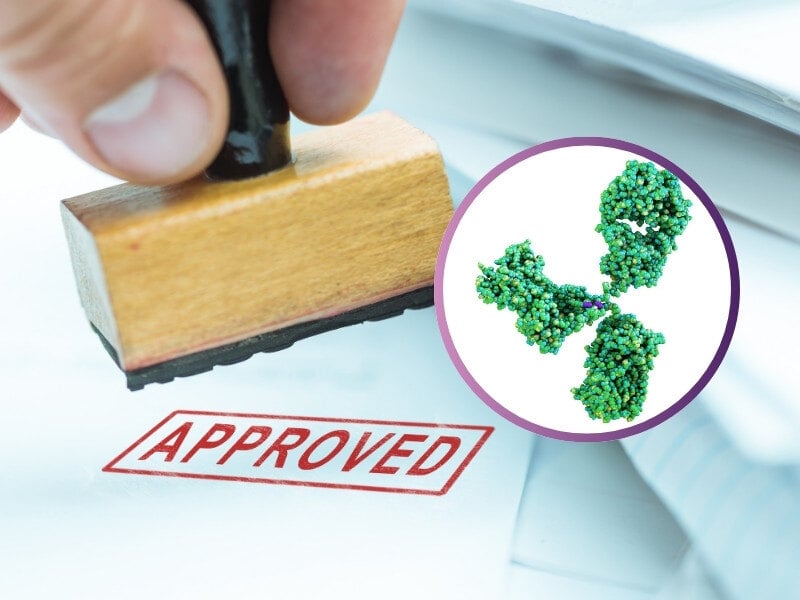iNKT Cells and Their Applications in Immuno-Oncology

Presented by: Marco Purbhoo PhD, Director of Translational Research at MiNK Therapeutics
Edited by: Ben Norris
Cytotoxic immune cells are an effective means of treating certain kinds of cancers. However, different varieties of immune cells have different applications, and there is no ‘one size fits all’ treatment that can be rolled out across the board. However, there is an immunotherapeutic niche which is occupied by allogeneic invariant Natural Killer T (iNKT) cells. These form a distinct T cell population, with the rapid activation kinetics of innate immune cells and the effector functions of adaptive T cells. For Marco Purbhoo, Director of Translational Research at MiNK Therapeutics, iNKT cells are a wonder product.
iNKT Cell Benefits Beyond Other Cell Therapies
As Purbhoo explained at Oxford Global’s Cell UK: In-Person event in October 2021, iNKT cells help to orchestrate innate and adaptive immune responses, making them naturally suitable for allogeneic applications in healthcare and cancer treatments. “In addition to mediating direct effects such as cytotoxicity, iNKT cells are also master regulators of immune responses,” said Purbhoo. The therapeutic acts extensively on monocytes such as dendritic cells and can influence the tumour microenvironment (TME), mitigating cytotoxic impacts.
“In addition to mediating direct effects such as cytotoxicity, iNKT cells are also master regulators of immune responses.”
One strength of iNKT cells over other cell therapies is their enhanced tolerability in allogeneic settings. Since iNKT cells have an invariant T cell receptor that is the same in all people and recognises a non-polymorphic target, they lack the histo-incompatibility that mars or complicates other T cell therapies, making them naturally suitable for allogeneic applications. Purbhoo explained that no gene engineering was needed for iNKT cells to be applied in treatment, and they can be administered without lymphodepletion – the administration of a short course of chemotherapy to kill the body’s innate T cells. From a manufacturing perspective iNKT cells are very attractive, as they have a vastly improved capacity for scalability.
Manufacture and Application for Immunotherapies
Purbhoo continued by explaining that iNKT cell application for anti-cancer responses benefits from tumour lysis via T cell receptor (TCR)-dependent and independent mechanisms. They work to counteract myeloid suppressor cells. In a lot of tumours, the myeloid cell compartment is suppressive or non-functional: iNKT cells can counter this suppression and trigger a modification of the TME. Additionally, iNKT cells can promote the maturation of dendritic cells, further abetting the body’s immune response (as seen in Figure 1).

iNKT cells have previously been used in the treatment of solid cancers, particularly head and neck cancers. “No serious cytokine release or neurotoxicity was observed,” said Purbhoo, “and up to one billion cells were released per treatment, making it comparable to approved cell therapies.”
Lung Therapeutics, Applications in Transplants, and GvHD
In addition to functioning as an oncological therapeutic, iNKT cells benefit in viral lung infection through recruiting NK cells and cytotoxic T cells. In doing this, it reduces the activity of suppressor cells, secreting cytokines and killing inflammatory monocytes to protect airway epithelial cells from damage. Purbhoo added that the myeloid compartment suppresses the maturation of dendritic cells. “Through the secretion of cytokines, they can protect epithelial cells from damage, preventing the hyperactivation of the immune response,” he said.
As an example of their efficacy, Purbhoo discussed the use of iNKT cells in fighting acute respiratory distress syndrome (ARDS): an inflammation-driven respiratory failure in viral infections. He explained that the therapeutic may dampen inflammatory cytokines, protect epithelial cells from damage, and could prevent reinfection.
Another area in which iNKT cells have a high potential of use is in the treatment of bone marrow and stem cell transplants. The therapeutic has been shown to aid in the success of transplants in two ways: firstly, in engraftment by the host, and secondly in preventing graft versus host disease (GvHD). GvHD occurs as a complication from bone marrow transplants in which T cells in the donor bone marrow graft attack the host’s tissues. Here, the therapeutic targets GvHD-affected tissues, reduce damage, and improve patient survival.
Multifunctional Biological Therapeutics
“So you may be thinking,” asked Purbhoo, “how can this unmodified cell type perform such a variety of functions?” Underlying this is the ability of iNKT cells to produce a lot of cytokines spanning the pro- and anti-inflammatory spectrum: Purbhoo explained that iNKT cell activity can be skewed towards either TH1 or TH2 profiles subject to the situation at hand. MiNK’s manufacturing process involves the use of proprietary reagents and processes. Over several rounds of stimulation, the process provides a vastly expanded product of over 99% purity.
- The Challenges Facing Antibody-Drug Conjugates for Immuno-Oncology
- Express Your Cells: Enhancing T Cell Function with Small Molecule HPK1 Inhibitors
- Using Live Gut Bacteria as a Co-Therapy for Checkpoint Inhibitors
“The product retains full functionality,” said Purbhoo. “One of the exciting developments in cell therapy is the potential of combining cell therapy with checkpoint inhibitors,” he continued. The efficacy of MiNK’s iNKT cells was studied in various models, including a leukaemia xenograft. Purbhoo added that the therapeutic can be modified with CARs to enhance tumour killing, with a hybrid of phage and proprietary mammalian display platforms.
Wrapping up, Purbhoo told the audience that iNKT cells were suitable for a variety of therapeutic functions and applications. Their capacity for modification for redirected targeting demonstrates enhanced performance over modified T cells. “To summarise, iNKT cells represent a versatile immune cell population with potential allogeneic applications for the treatment of cancers and GvHD,” said Purbhoo. “MiNK Therapeutics are the most advanced company progressing native NKT cells in clinical trials.”
Want to read more about the latest advances in immuno-oncology and immune therapies? Check out our Immuno portal for cutting insights and insider views from the industry’s best and brightest. If you’d like to register your interest in our upcoming Immuno UK: In-Person conference, visit our event website.







